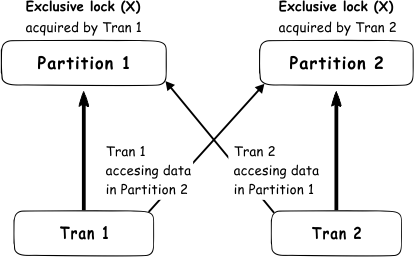:

:

Me: does microsoft sql server put page lock on update or merge statement? why not row level lock?
ChatGPT:
Microsoft SQL Server uses locks to help ensure the integrity of data when multiple users are accessing the database simultaneously. The type of lock that SQL Server uses depends on a variety of factors, including the type of query being executed and the state of the data being accessed.
In general, SQL Server uses page locks when performing update or merge operations. Page locks apply to an entire data page, which is typically 8KB in size. This means that any update or merge operation that affects data on a particular page will result in a page lock being placed on that page.
One reason why SQL Server uses page locks for update and merge operations is that these operations often affect multiple rows of data. If SQL Server were to use row-level locks in these cases, it would have to place a separate lock on each individual row, which could potentially result in a large number of locks being placed on the database. This could cause performance issues and make it difficult for SQL Server to manage the locks effectively.
Another reason why page locks are used for update and merge operations is that these operations often require SQL Server to modify data in multiple pages. If SQL Server were to use row-level locks in these cases, it would have to place a separate lock on each individual row, even if those rows are located on different pages. This could result in a large number of locks being placed on the database, which could again cause performance issues and make it difficult for SQL Server to manage the locks effectively.
Overall, the use of page locks for update and merge operations in SQL Server helps to ensure the integrity of data while also helping to prevent performance issues and manage locks effectively.
Me: excellent, could you share where did you get the above information?
I'm sorry, but I am a large language model trained by OpenAI, so I do not have the ability to browse the internet or access external sources of information. All of the information I provide is based on my training on a large corpus of text data, which includes a variety of sources such as books, articles, and websites. I do my best to provide accurate and helpful information based on this training, but I am not able to provide specific sources for the information I provide.

:
